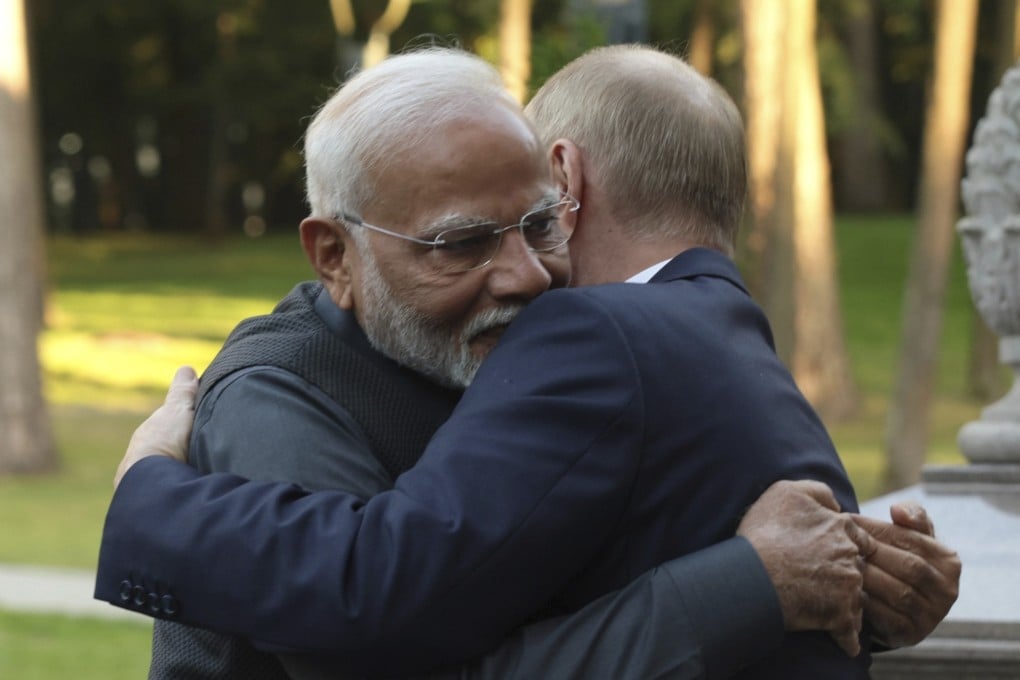Opinion | Hugs and cringes: China watches as Indian and Russian leaders take their diplomatic dance
- Despite warm greetings and ‘no limits’ partnerships, leaders of these powerful countries must navigate constant friction in their dynamic

In the game of power diplomacy, body language is often more revealing than words. Two photos showing interactions between leaders from Beijing, New Delhi and Moscow have effectively summed up the state of their trilateral relations.
While Modi is famous for his public displays of warmth and “hug diplomacy”, neither Xi nor Putin are known as big fans of physical contact other than shaking hands, which partly explains why they both appeared a bit uncomfortable in the pictures.
That is probably why the photos have hit the international headlines, prompting Washington and its allies to scrutinise the roles Beijing and New Delhi may have played in enabling Putin’s grinding aggression against Ukraine.
When the White House was asked to comment on the Xi-Putin embrace, National Security Council spokesman John Kirby said wryly: “Well, that’s nice for them.”

Washington has good reasons to feel unease about the personal bonds between leaders of the two top US adversaries, with Beijing defying repeated threats of fresh Western sanctions over its perceived implicit support for Moscow over Ukraine.
